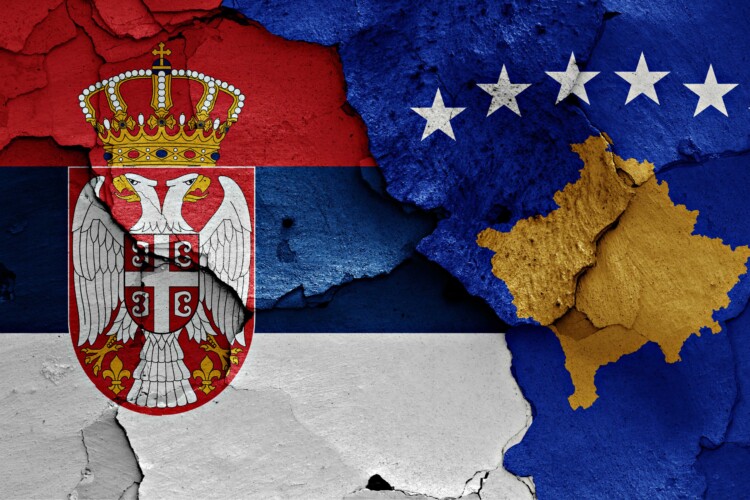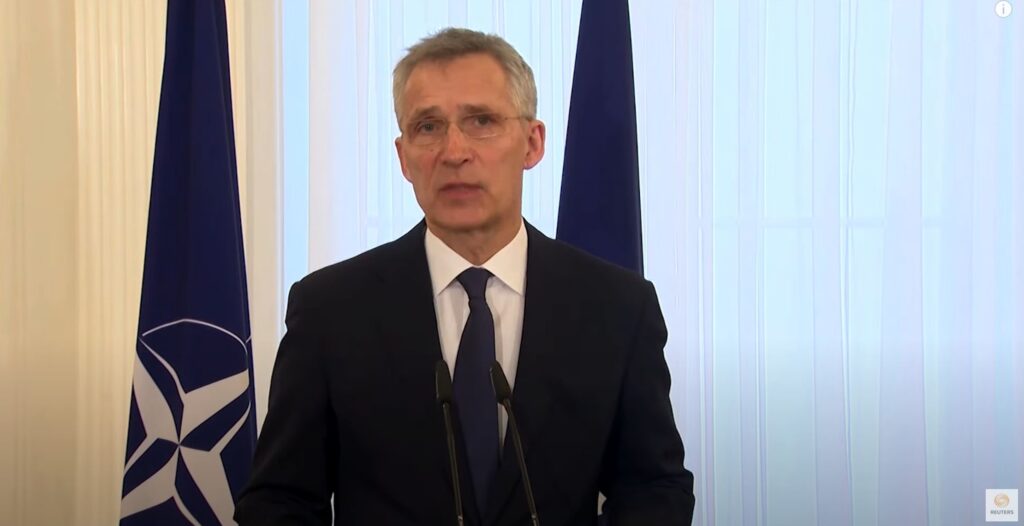Masked individuals affiliated with Serbia’s far-right have often been inflating tensions to provoke Albanians into post-haste unilateral actions, which US Forces embedded within the KFOR mission confirmed. The Americans in KFOR also confirmed several NATO forces injured in the clashes were from gunfire, showing the ‘protestors’ were more organized than believed and could be linked directly to Vucic.
The recent tensions have been a gift for Belgrade‘s ruling government to cater to the more far-right and ultranationalist elements. At the same time, they continue to play cavalier politics as funding from the European Union and Washington keeps their economy afloat to pull the last of the Balkan states into their fold.
If there's one video you need to watch about the recent events in northern Kosovo, it's this.
American NATO soldier tells the truth about the attacks on NATO soldiers to the face of Srpska Lista senior officials.
Srpska Lista is directly controlled by Serbia's regime. pic.twitter.com/qTy1QiBGKR
— Admirim (@admirim) June 1, 2023
Tensions are Very Unlikely to Lead to War
Despite the rise in tensions that caused several dozen KFOR casualties, a new war is doubtful to occur soon. Serbia was demilitarized post-Kosovo War with few advancements in the defense sector in the last two decades.
Serbia’s demographics have declined, with many Serbs emigrating to Europe and America for better economic opportunities, leaving their military to nothing more than a self-defense force.
Nevertheless, renewed nationalistic fever works for Vucic, and the constant placating of his office by the US and EU has only encouraged him to inflame tensions in the region.
Remedying Incidents in the Future
The Kosovar government, the Serbs of the region, and the international community all have multiple lessons to learn from the tensions. For Pristina, which has worked hard towards global recognition and acknowledgment, unilateral decisions without consulting its backers can result in setbacks in government.
Until Kosovo has majority recognition in the United Nations and a solid path to EU membership and NATO partnership, the ruling government must be careful not to overstep its boundaries.
For the Kosovo Serbs, also have to realize boycotting elections only backs them into a corner even more. When the Sunnis of Iraq boycotted the elections post-Saddam, it only allowed the Shiites to clean-sweep critical positions. It only led to renewed fighting and sectarianism—something that can quickly occur in Kosovo.
America also has to realize placating longtime strongmen can backfire, and at times, their policies can inflame tensions. Attempting to subvert Russian influence by placating two governments with hostile relations negate the overall vision the State Department wants for the region. Like Cyprus in the 70s, the ‘both sides’ politics ultimately led to a conflict that spiraled out of control.
Nevertheless, a continued presence of peacekeepers in the KFOR mission is essential, but underlying unilateral actions by Pristina and ultranationalist rhetoric by Belgrade will continue to open the wounds of the past. Eventually, the US and EU will have to take a side instead of rewarding provocative actions in the Balkans.
—
** Check out Kosovo,What Everyone Needs to Know.












COMMENTS